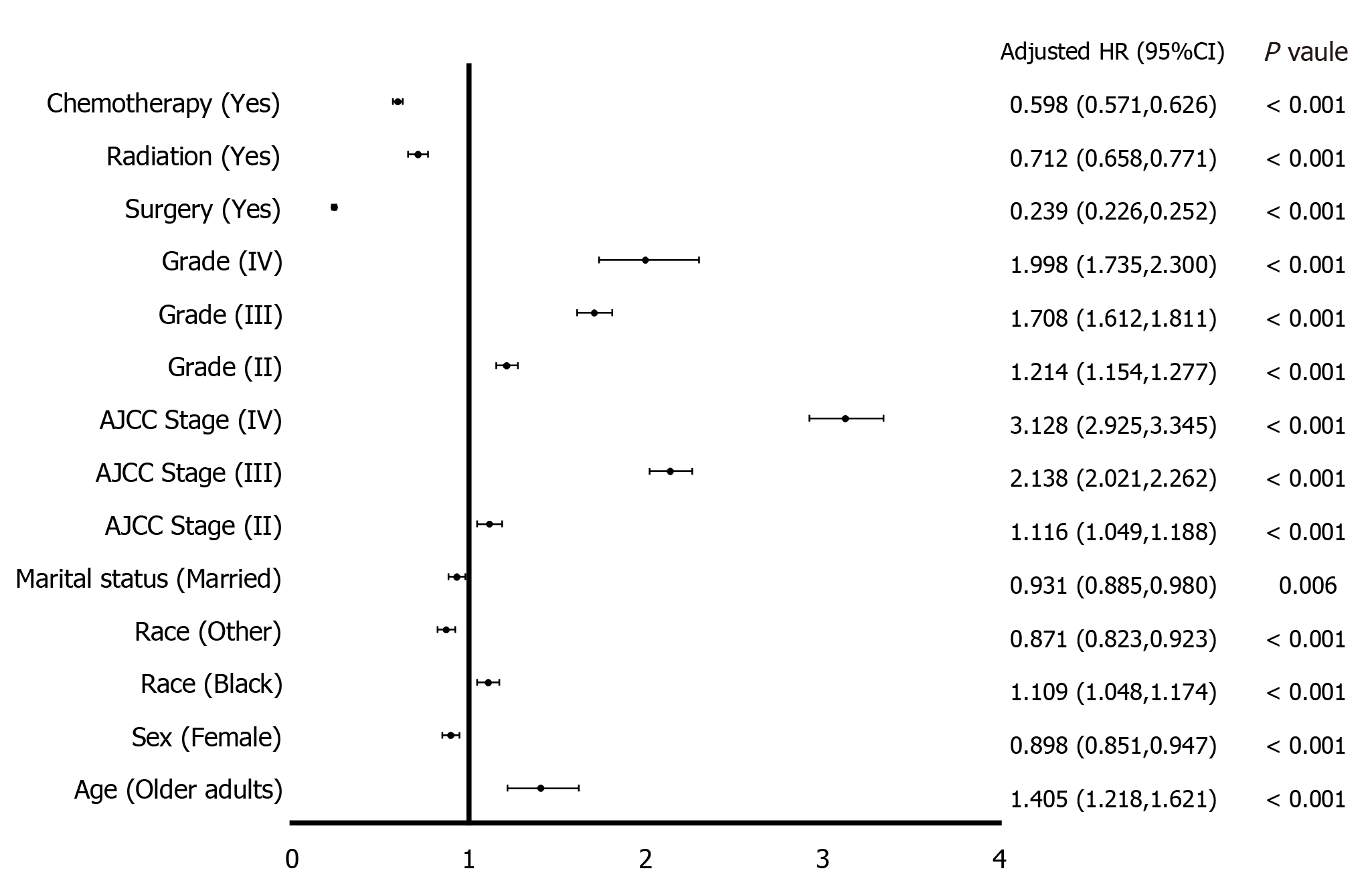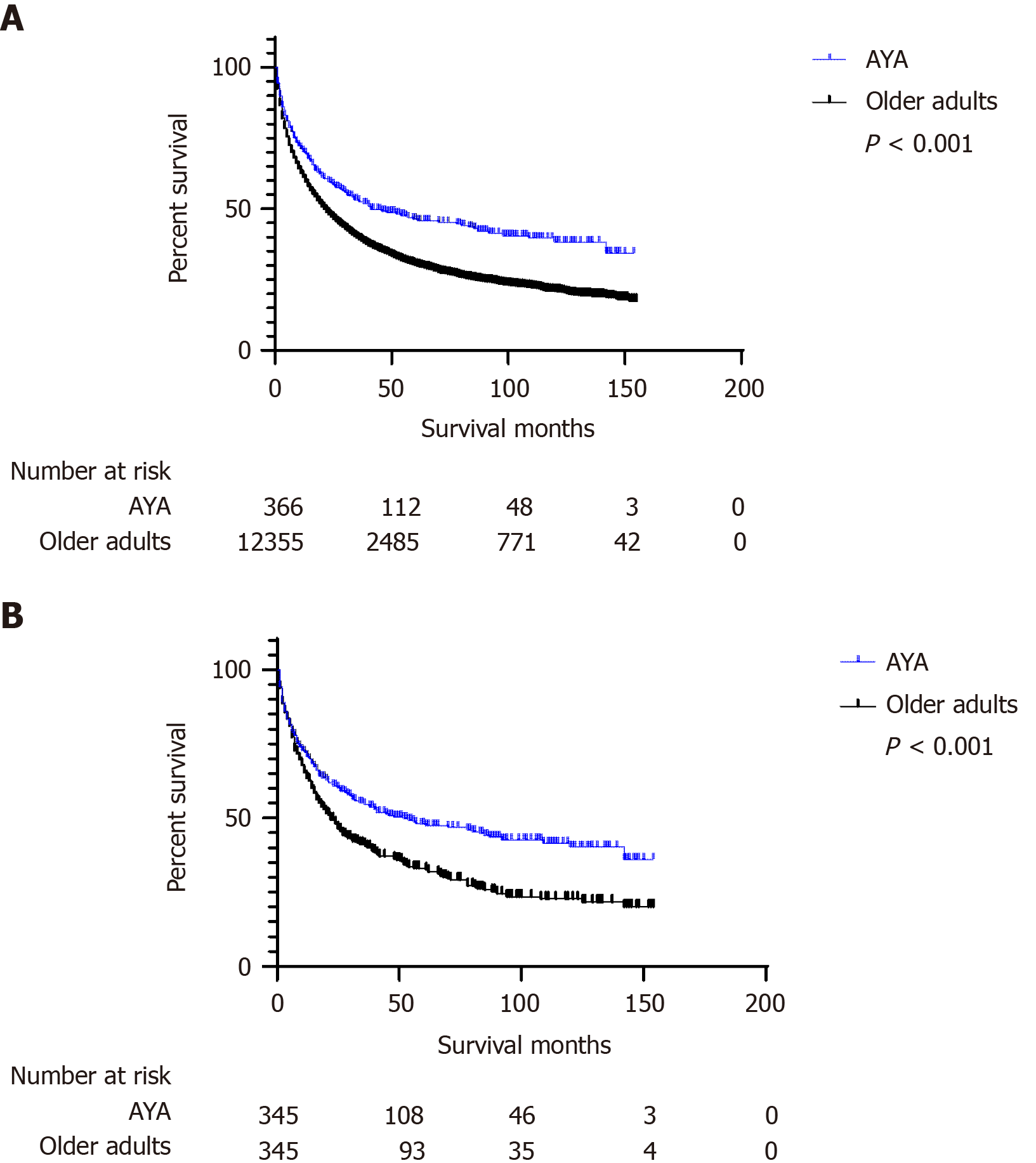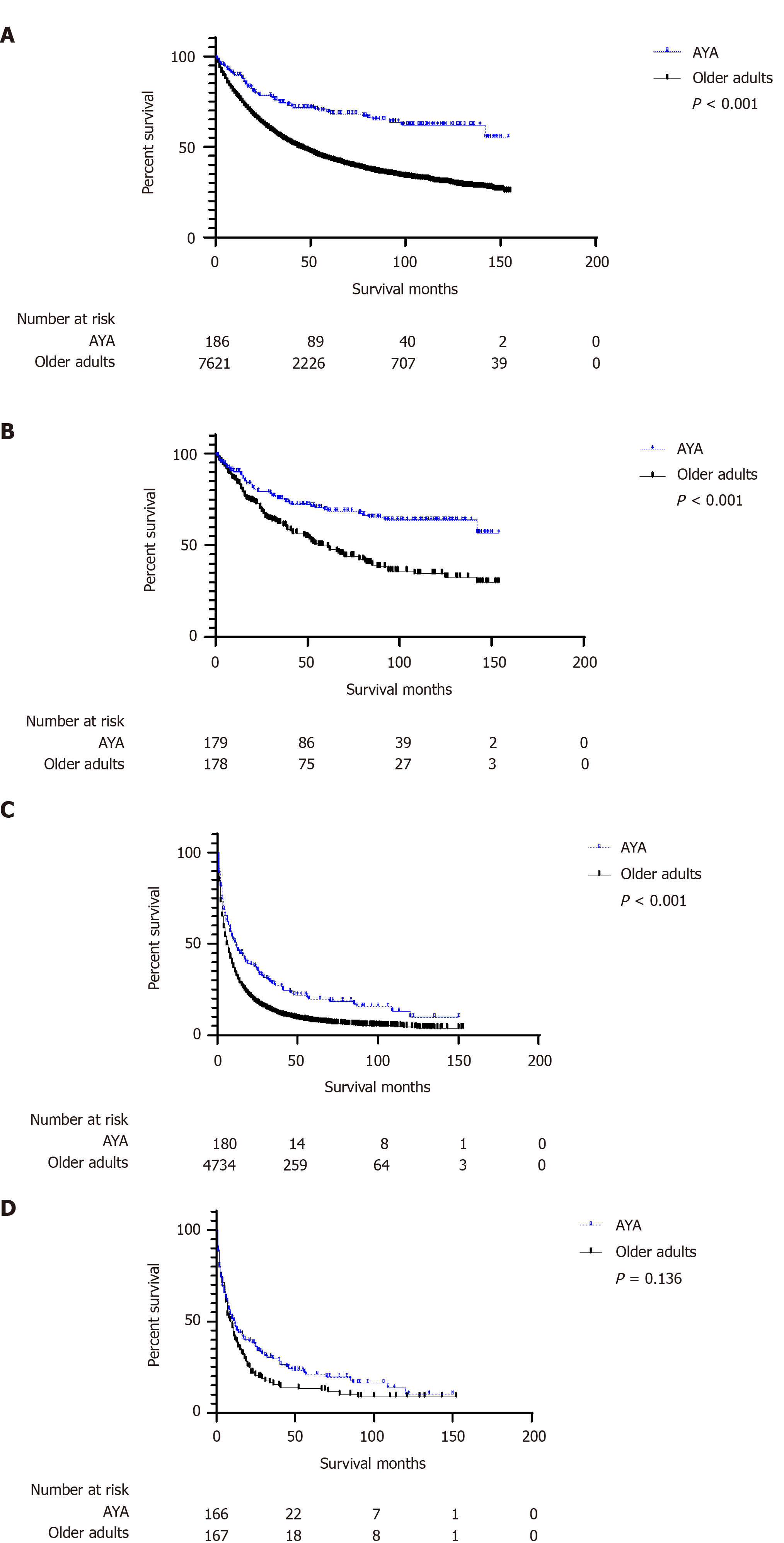Copyright
©The Author(s) 2020.
World J Gastrointest Oncol. Dec 15, 2020; 12(12): 1394-1406
Published online Dec 15, 2020. doi: 10.4251/wjgo.v12.i12.1394
Published online Dec 15, 2020. doi: 10.4251/wjgo.v12.i12.1394
Figure 1 Forest map of multivariate analysis of overall survival in patients with hepatocellular carcinoma.
All variables were statistically significant. Advanced age, black ethnicity, advanced American Joint Committee on Cancer stage, and advanced grade are risk factors for OS of HCC patients; female gender, other races, married status, surgery, radiation, and chemotherapy are protective factors for OS of HCC patients. AJCC: American Joint Committee on Cancer; Grade I: Well differentiated; Grade II: Moderately differentiated; Grade III: Poorly differentiated; Grade IV: Undifferentiated; OS: Overall survival; HCC: Hepatocellular carcinoma.
Figure 2 Comparison of overall survival in hepatocellular carcinoma patients between adolescent and young adult and older groups before and after propensity score matching (A and B).
AYA: Adolescent and young adult; OS: Overall survival.
Figure 3 Difference in overall survival between the two groups of patients in different American Joint Committee on Cancer stages before and after propensity score matching using Kaplan-Meier curves and the log-rank tests.
A and B: Comparison of overall survival between adolescent and young adult and older hepatocellular carcinoma patients in AJCC stage I/II before and after propensity score matching; C and D: Comparison of overall survival between adolescent and young adult and older hepatocellular carcinoma patients in AJCC stage III/IV before and after propensity score matching (C and D). AYA: Adolescent and young adult.
- Citation: Ren J, Tong YM, Cui RX, Wang Z, Li QL, Liu W, Qu K, Zhang JY, Liu C, Wan Y. Comparison of survival between adolescent and young adult vs older patients with hepatocellular carcinoma. World J Gastrointest Oncol 2020; 12(12): 1394-1406
- URL: https://www.wjgnet.com/1948-5204/full/v12/i12/1394.htm
- DOI: https://dx.doi.org/10.4251/wjgo.v12.i12.1394











